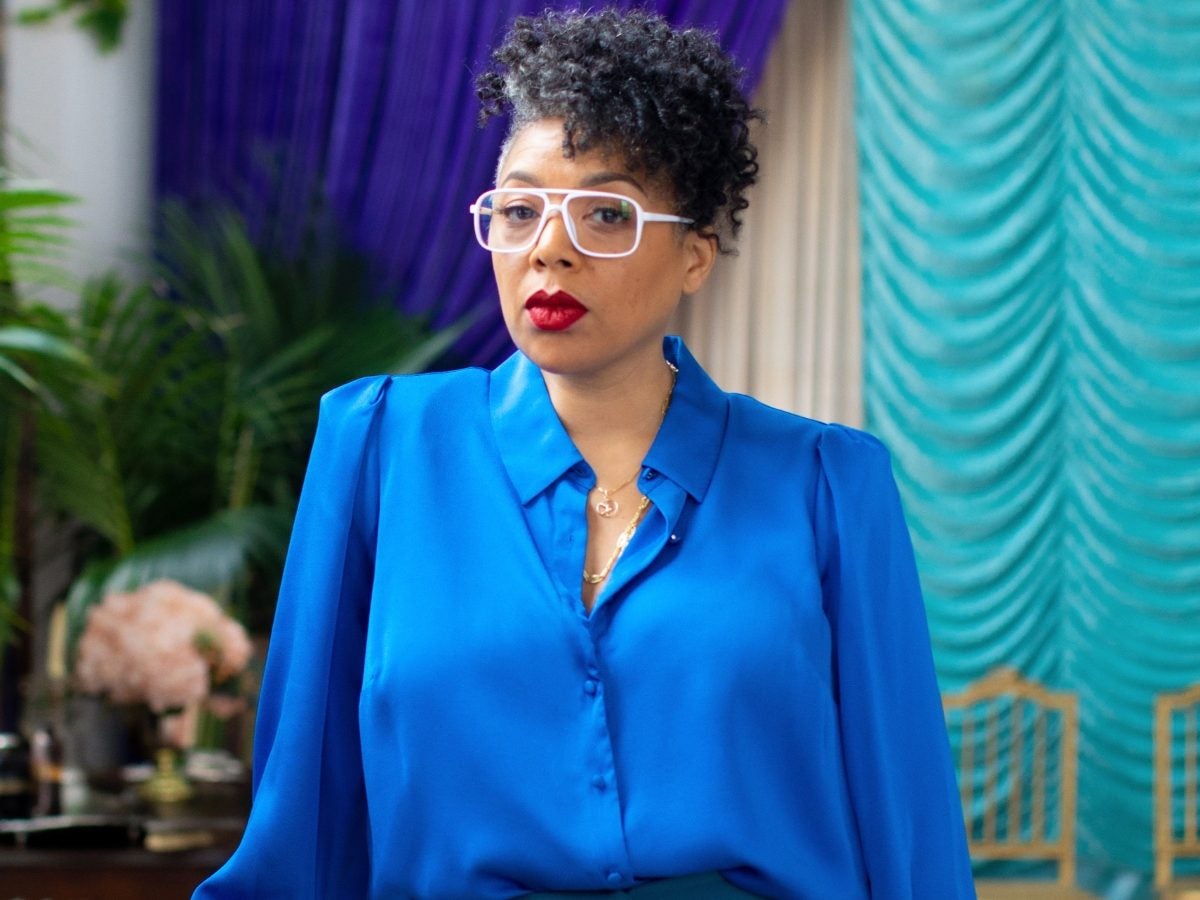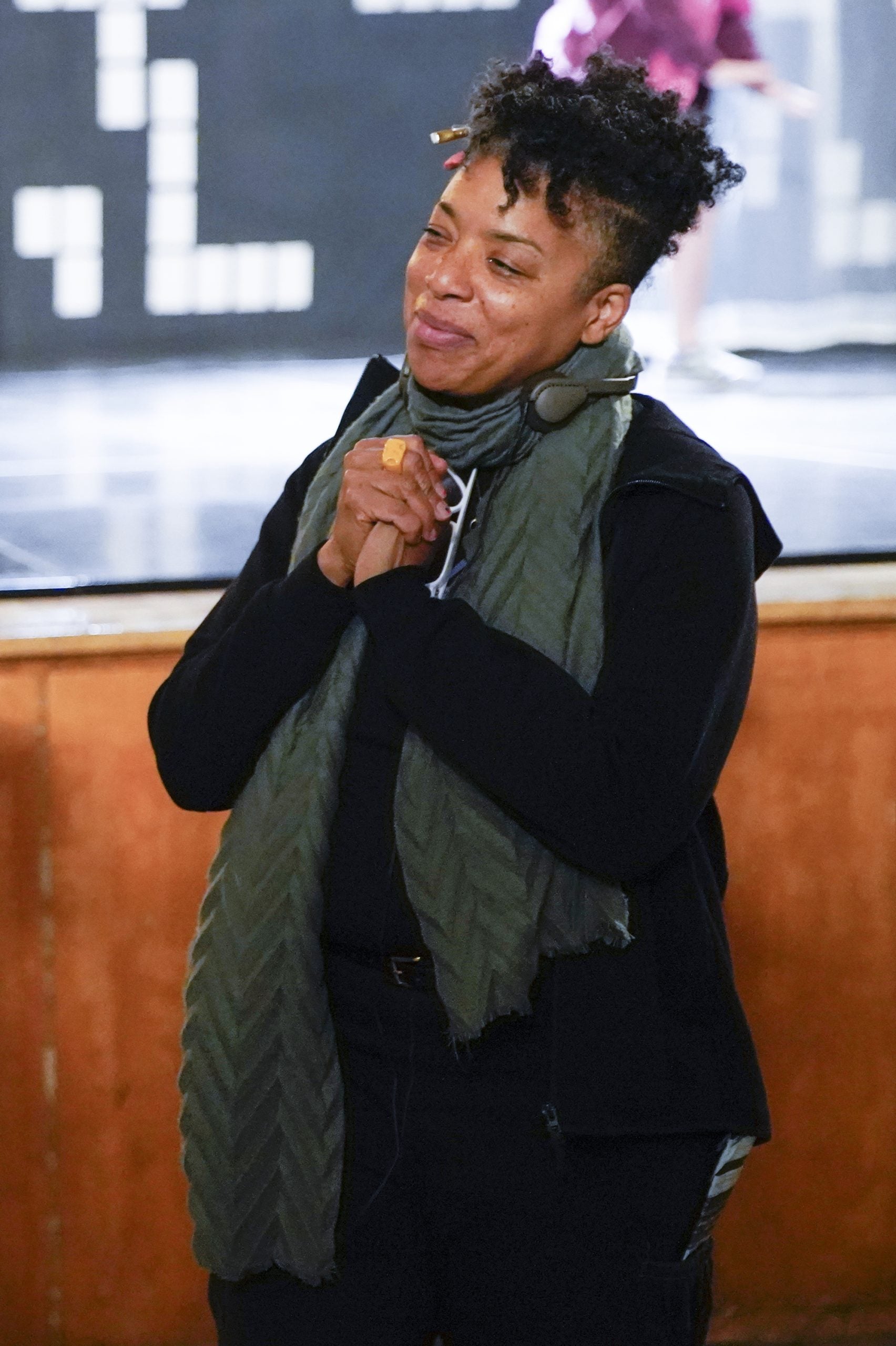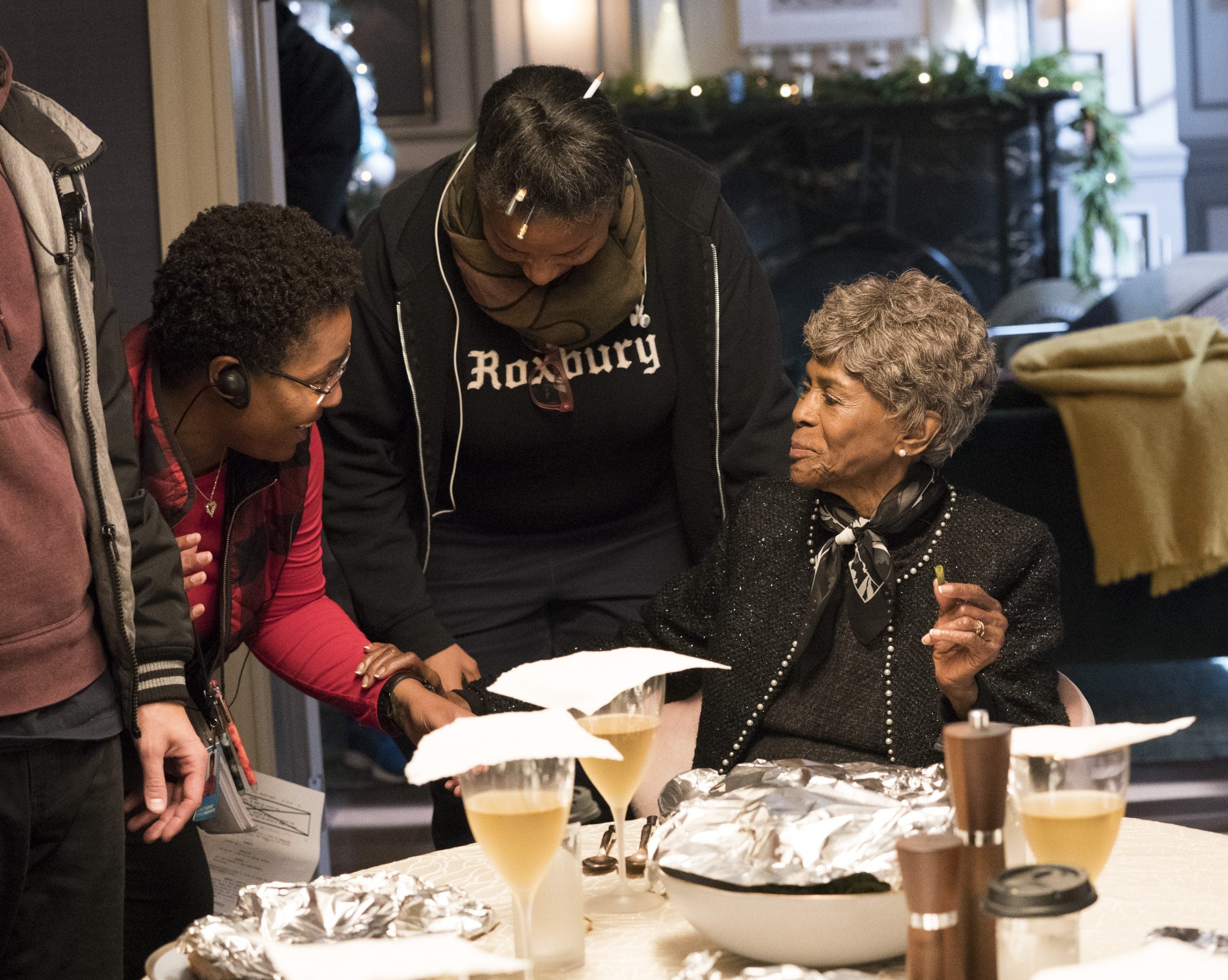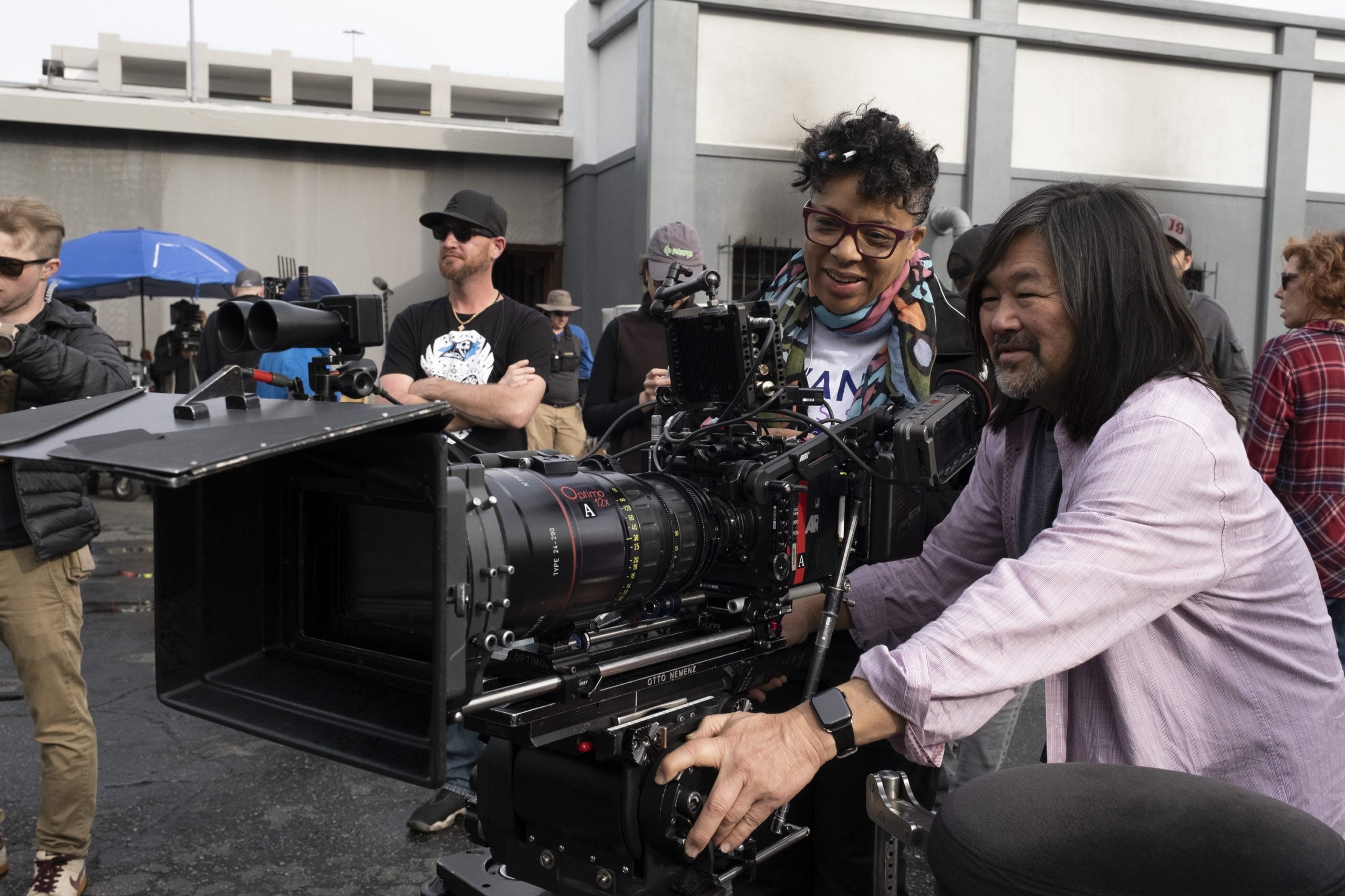
In 2017, DeMane Davis limped onto the set of Queen Sugar to direct an episode of the Ava DuVernay series. Despite her temporary physical ailment, delaying the opportunity was not an option.
“I had broken my ankle,” she told ESSENCE. “On both sides, I had to have two surgeries in one month.”
Shortly after being discharged from the hospital, she got a phone call from Executive Producer Paul Garnes inviting her to visit the magnolia state where the OWN drama is filmed. “He was like ‘so you’ll come down to New Orleans?’ And I was like yep, yep absolutely,” she recalled.
Davis put one metal spear in front of the other for the chance to tell a chapter of the Bordelon siblings’ saga. She wanted to be part of the universe Ava DuVernay created – badly.
“That’s what crutches are for,” she said with a laugh.

“Pro tip, if you ever break your ankle or you need to elevate your ankle, elevate both of your legs, because you will throw your hips off. I learned that the hard way.”
The painful lesson wasn’t the first sacrifice Davis experienced on her journey to directing in Hollywood. She was inspired by her mother whom she said “went to night school and raised four children as a single mom.”
“That’s a big part of what continues to get me up every day, knowing that that’s something that she did and she would want me to do,” said Davis.
Her commitment led to her casting Kerry Washington in her first leading role in Lift, a 2001 film Davis co-directed with Khari Streeter. The production was created at a time where corporate benefactors and media conglomerates were not eager to be in business with Black women. She worked hard to see the vision through.
Featuring strong performances from Washington, Lonette McKee, and Kirk “Sticky Fingaz” Jones, before it’s cable network release, Lift earned the 1998 Sundance/NHK International Filmmakers Award, was nominated for two Independent Spirit Awards, and stood out at the 2001 UrbanWorld Film Festival.

Showtime Network eventually acquired it allowing many Black women and girls to recognize the complexity in their friends, family members, and selves on screen for the first time. It tapped into the identity of her native Roxbury.
“This is a little bit of me. This is what I grew up with. That’s what I wrote. Not something to appeal to any particular group or person,” said Davis.
“I think what we need to do is bring what we care about into every aspect of our jobs. And then that in turn makes our jobs more interesting, makes us more dedicated to our jobs or we need to do another job.”
Rewards for creating a cult classic can be different when the “slice-of-life” you’re presenting is not relatable to those in power. For a while Davis was not offered opportunities like the one she hobbled to grasp years later.
Davis did not internalize how the industry’s landscape impacted her journey. She learned “not to lose my own voice,” she explained and pivoted into advertising and pursued other professional endeavors that led to more learning experiences. “Copywriting taught me how to tell a story with an abbreviated amount of time,” said Davis.
She believed she would have the chance to tell stories from behind the camera again one day.

“I’m a firm believer in thoughts become things. And it’s something that was always in my mind, and that I was always kind of putting forth in my journals and wanting to happen,” she said.
Still, she was unsure how she would dive back into her dreams. Ava’s support swiftly unlocked doors to Davis’ desires. She went on to direct on You, How to Get Away with Murder, and Station 19.
“Ava gave me my career,” she said. Working with the prestigious director allowed her to work with “amazing artists,” like “Henry Saunders, Miss Octavia Spencer, Miss Viola Davis- I call them Miss and the late Ms. Tyson and Blair Underwood.”
Being able to interact with such talent led Davis to a happier injury. “For a while my arm was black and blue, ‘cause I was pinching myself.”
DuVernay exclusively hired women as directors on her series, providing the opportunities that were missing from the entertainment industry on her own rise to power and founded ARRAY, a film-centered “grassroots distribution, arts and advocacy collective,” to support all types of artisans ans creators . The Queen Sugar set was the only time Davis had the chance to work “with a Black female grip as a crew member,” thanks to ARRAY.
“I owe that to her incredible vision to have all female directors on Queen Sugar, every single season, specifically directors who had not yet directed for television,” said Davis.
“She’s done that for me. And so many of my other Queen Sugar sisters. That’s more than a mentor. It’s been an incredible ride, I always say she put me in a rocket ship and I have no intentions of coming back down to earth.”
That rocket ship took a trip to Warner Brothers, where Davis has earned an overall deal she is “over the moon about.”
“You know what Warner Brothers meant to me when I was little watching films?” she asked, recalling “seeing that logo coming up and watching Bugs Bunny. I’m honored.
The honor means more because “there are other sisters there.” She shares their platforms with other Black women including Ashley Nicole Black, Janine Sherman Barrois, Nkechi Okoro Carroll, Patrisse Cullors, Rikki Hughes, Issa Rae, Angela Robinson, and Lena Waithe.
“We all get to be in the same sandbox,” said Davis. She wants to make more room on the playground.
“I hope to bring and celebrate more Black women into the projects that I’m gonna do and give them an opportunity the way that I was given an opportunity,” she said.
She and DuVernay recently collaborated on the upcoming CW series Naomi. The show will follow a young Black girl juggling the challenges of high school with her emerging superpowers. Davis will be one of the show’s directors.
“There is a Black teenage female superhero with powers,” said Davis, deliberately pausing between syllables to stress the potential impact of the show’s representation on its viewers.
“You are going to be able to turn on your TV and see something that when I was little, I had never had, like that is absolutely mind blowing.”





